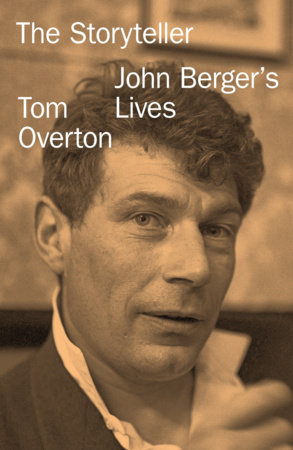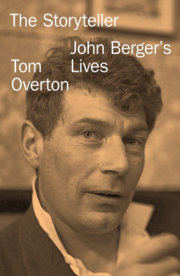A magisterial biography of novelist and critic John Berger, whose work—including Ways of Seeing and the Booker-prize winning G.—revolutionized the critical tradition in the twentieth century
The Storyteller began with conversations between the author and subject while Overton catalogued Berger’s archive at the British Library. Overton then, naturally, drew in the perspectives of friends, family, and collaborators. But at the center of this research is a miracle that occurred after Berger’s death: a Pompeii-like record of his life and work in the 1960s that was dragged out of the Genevan bomb shelter it had been locked in for fifty years.
John Berger was born into Central European Judaism and the trauma of the first World War on one side of his family, and on the other, he inherited working-class radicalism and suffragism. Initiated into the British ruling class through boarding school and military service, he became a painter in the shadow of nuclear annihilation, then a novelist, critic, and broadcaster in Cold War London and later in the Alps, where his work as a truly European writer with a global audience flowered. Berger called himself a storyteller, and he worked by going in close to an experience and bringing something back. In Overton’s words, half of this story of Berger’s life “is where the needs — political, artistic, emotional—to be this storyteller came from” and the other is “what this sense of himself as a storyteller let him do.” The Storyteller examines the achievements and limits of Berger’s ethics of collaboration, and the impact of his self-defined storytelling on figures as varied as Susan Sontag, Anne Michaels, Michael Ondaatje, Geoff Dyer, Arundhati Roy and the internationally renowned theater company Complicite´.
Berger’s was a long life of short books that lastingly defined their subjects. The politics and technology of art in Ways of Seeing. Migration to Europe in A Seventh Man. Humans, animals, and the earth in Into Their Labours. What it is to be a good doctor in A Fortunate Man. Tom Overton’s The Storyteller is a book that defines Berger, and it is a story to be continued by the reader.




